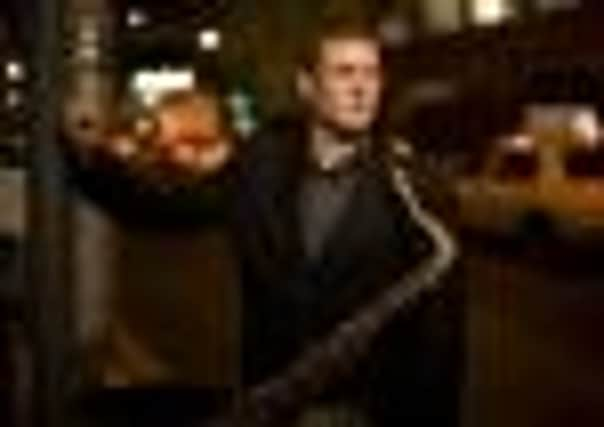Bill’s raised the Bar for grassroots jazz, but cuts are biting


The joint which jumps nightly with some of the best contemporary jazz sounds around is still and empty, seats neatly stacked, the stage a deserted grove of microphones. In a gloomy corner sits the Yamaha grand which, a few years ago, the bar’s customers helped to buy, forking out £50 for each of its 88 keys.
For the bar’s proprietor, time-served jazz drummer Bill Kyle, making ends meet tends to be a major preoccupation. Scotland’s only full-time dedicated jazz venue, the Jazz Bar has collected several awards including UK Jazz venue of the Year in the Parliamentary Jazz Awards. It is now settled into a successful formula, Kyle says, bringing in audiences by augmenting its nightly jazz session with acoustic roots and blues, funk and soul, not to mention hosting such diverse non-musical activities as book launches and burlesque life drawing classes.
Advertisement
Hide AdThings are rather less certain for Bridge Music, the operation’s non-profit promotional wing, which mounts top-end modern jazz gigs in the bar and in Glasgow Arts Club. During 2010-11, the then Scottish Arts Council funded a Bridge Music programme of 46 Edinburgh concerts and 25 in Glasgow. As the SAC became Creative Scotland, Kyle applied for further funding to cover 75 gigs. He was unsuccessful, although Creative Scotland did eventually come up with development funding, but that runs out in April. Matters haven’t been helped by the fact that Bridge’s regular Glasgow venue, Glasgow Art Club’s gallery space, is closing in May for an 18 month refurbishment.
Kyle is currently preparing another application, hoping that the turmoil which has afflicted Creative Scotland may throw up a more receptive response this time around. His argument is that while CS funding goes to recipients such as Scottish National Jazz orchestra and festival organiser Jazz Scotland, there is no funding going into supporting regular jazz on the ground. “The Royal Conservatoire of Scotland is churning out great young players, but where are they going to play?” he muses. “The young guys who go to the Guildhall tend to stay in London, because there’s no scene here for them to come back to.”
Kyle encourages young players, with emerging, award-winning names such as Pete Johnstone and Alan Benzie playing there. He nods at the empty stage: “The conservatoire gives them their formal degree, but the real jazz academy is on that stage there. That’s where they really develop.”
In the meantime, the bar is kicking off the new year in no uncertain manner, with Bridge Music events including the South Korean-based Scots pianist Paul Kirby returning tomorrow night with an international quartet including London trumpeter Damon Brown and German visitors Michael Lutzier on baritone sax, and bassist Martin Zenker. Wednesday 30 January sees the return of outstanding New York saxophonist Eric Alexander with his Organ Quartet, featuring guest trumpeter Jim Rotondi, the ensemble riding the swirl of Renato Chicco’s Hammond.
On Thursday 31 January the inventive Scots-Australian-Canadian trio NeWt have their way with the film music of John Williams. Another visitor, on 6 February, is Australian pianist and composer Alister Spence who combines free-improv and minimalism; he will be joined by Glasgow Improvisers’ Orchestra saxophonist Raymond MacDonald. And on 20 February, pianist Jonathan Gee leads a formidable trio with New York bassist Joseph Lepore and London drummer Gene Calderazzo.
Expect fiery London-based Israeli reedsman Gilad Atzmon in March and, looking further ahead, Kyle has already arranged 80 per cent of his copious Fringe programme. In the meantime, his more pressing concern was just how many of his regular Monday night Jazz Bar Big Band would make it through the snow.
• For further details, see www.thejazzbar.co.uk and www.bridgejazz.co.uk